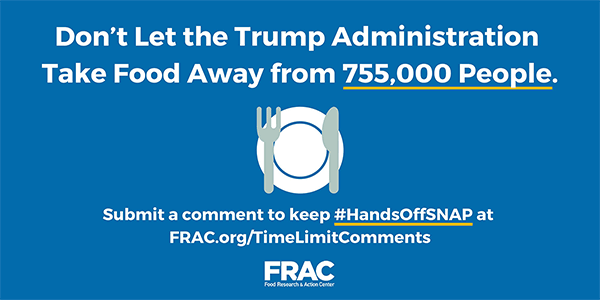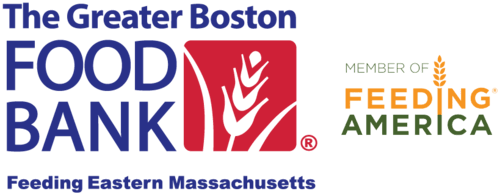ABAWD: Take Action by April 2
 The US Department of Agriculture (USDA) is looking to impose stricter rules on the largest food assistance program in the country, the Supplemental Nutrition Assistance Program (SNAP, formerly known as food stamps), specifically for childless adults who are having trouble finding work.
The US Department of Agriculture (USDA) is looking to impose stricter rules on the largest food assistance program in the country, the Supplemental Nutrition Assistance Program (SNAP, formerly known as food stamps), specifically for childless adults who are having trouble finding work.
This new rule would cut SNAP benefits by $15 billion over ten years for over 775,000 adults, including tens of thousands of individuals here in Massachusetts. This would mean Americans who are having a hard time looking for a job would face yet another challenge – looking for their next meal.
But first, they’re asking for you to weigh in. And they’re going to listen: USDA must read and answer every unique comment they receive on this idea. So, we need your help: Tell USDA that punishing Americans looking for jobs with stricter rules on food assistance will only lead to more people going hungry in our country.
The Greater Boston Food Bank (GBFB) is gravely concerned about the increasing emphasis on work requirements and how they will increase food insecurity in our communities. Read our full comment to USDA here.
Join GBFB in speaking out against these harmful changes before the comment deadline on April 2! Here’s how to take action:
- Submit your comments!
- Cut and paste your organization’s comments into the online submission tool at Regulations.gov.
- Feeding America has created a simple online tool to submit brief comments from individuals.
- Write formal comments on behalf of your organization.
- Feeding America has developed templates for organizations that can be easily customized. Please add in your organization name and any stories or additional information explaining how harmful the time limit is for ABAWDs in your community. A general comment template can be found here.
- Issue-area specific templates can be found here:
- Child Focused Template
- College Students Template
- Health Sector Template
- Interfaith Template
- Immigrants and Communities of Color Template
- Workforce Development Template
- Young Adult Template
- Seniors Template
- Poverty and Inequality Template
- Women Template
- LGBTQ Template
- Aging Out of Foster Care Template
- Domestic and Sexual Violence Template
- Criminal Justice Template
Wait, what’s an “ABAWD”? How does this impact my community? What can I do?
If you’re asking yourself these or any other questions about this population, this rule, and how you can help, read Feeding America’s Policy Brief and Talking Points.
Long story short: Under the current rules, able-bodied adults without dependents (ABAWDs) can get food assistance through SNAP for only three months if they’ve lost their job or are only working part-time. After three months, recipients cannot access SNAP benefits for three years. States can choose to extend that help an additional year if there aren’t any jobs in a person’s community. USDA is proposing to take flexibility away from states and cut off a lifeline for those who are looking for work or working part-time.
We need your help to demonstrate widespread opposition to this deeply troubling rule that would limit state flexibility to address fluctuating economic circumstances and worsen food insecurity in our communities.
If you have questions, please contact Director of Communications and Public Affairs, Catherine Drennan, at cdrennan@gbfb.org.
